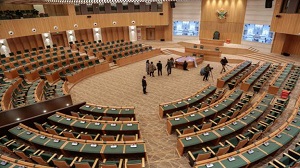According to Sebastien Alexanderson, Head of National Debt Advisors, school fees have consistently grown nearly 3% above inflation annually since 2012, driven by higher teacher salaries, municipal rates, and unpaid fees.
“The rising educational costs put a strain on middle- to lower-income South Africans, where many are forced to choose between spending money on food or education-related expenses,” Alexanderson said. He added that many families are resorting to payment plans or seeking fee exemptions as a way to cope.
Unpaid school fees are compounding the issue. “When parents default on school fees, it creates a shortfall that must be covered in the following year’s fees, leading to consistent increases that outpace the inflation rate,” Alexanderson said.
To address the affordability of education, Alexanderson suggested several approaches. “Some solutions include donation programmes aimed at funding primary and secondary education, as well as reforms in how education is financed. Consumers are also encouraged to consult with schools for alternative solutions when fees become unaffordable,” he said.
Collaboration between schools, government, and private stakeholders is essential to ensure quality education remains accessible. “The government’s role includes funding, policy support, subsidies, and scholarship programmes, as well as developing sufficient infrastructure,” he said.
“Schools must optimise their resources, limit wasteful expenditure, and drive community engagement, while private stakeholders can contribute through corporate social responsibility initiatives, funding, and providing technological solutions.”
Alexanderson warned about the long-term implications of rising school fees, particularly for low-income families. “As fees rise, quality education may become increasingly inaccessible to lower-income groups who desperately need it to improve their socio-economic standing. This will only serve to widen the gap between the haves and have-nots,” he said.
--ChannelAfrica--













